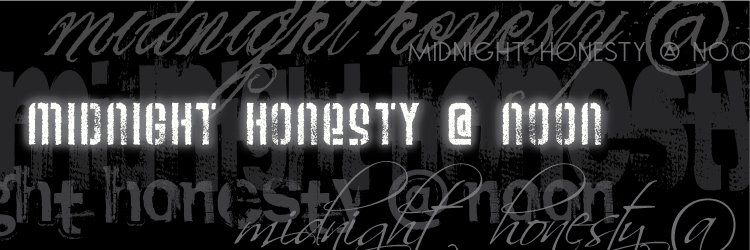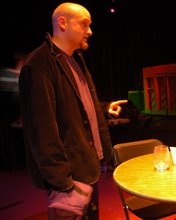Control
I have my requisite 'what I think is wrong with theatre' post underway (and only two weeks after that virus came and went again) but I have a subissue in my head that needs some sussing out.
Before I get into that, a hearty welcome to Mr. Grady Burnett Walsh, and congratulations to the happy healthy Mom (and Malachy I suppose).
I have a running fascination with the way the Right Wing in this country control the language of any issue up for debate. It raises the question of why the Left has ceded that ground when so much of that population is obsessed with words, but that's a question for a different day, and a different blog.
While in my freshman and sophomore years at the very underrated University of New Hampshire, I (along with my class and cast mates) was hammered by Professor Peggy Rae Johnson with one word.
Specificity.
Along with Acting 1 and 2 she also taught the Voice and Diction and Oral Interp classes so you can just imaging how that particular word sounding coming out of her mouth.
Specificity.
Some things just stick.
But it also strikes me that specificity is what is missing in our discussion of the theatre universe on a meta level. The discussion is mushy because blogging as a form is mushy, and because we share an artform, but no history together. But the majority of theatre bloggers try to stay 'folksy' and off-the-cuff with assumed familiarity.
The vocabulary of theatre, theatre theory, and theatre criticism is bathed in subjectivity and experiential meaning.
What does post-modern mean?
(when used in a promotional slug, not a text book)
Experimental?
Performance Piece?
Good?
Revolutionary?
Edgy?
Avant Garde?
Fringe?
Blogging is a short-form medium generally, but when we are trying to communicate larger issues (like say a blogger trying to piece together what they think is Wrong With Theatre) you can't cut corners. You can't shorthand the language, and you can't assume shared experience.
Rather - You can, but not without pissing a lot of folks off.
We (read: I) need to remember to fully flesh out ideas and turns of phrase. Right down to what we think those 'short cut' words mean. Are there more specific words and phrases to communicate with?
This is true with all audiences real and virtual.







